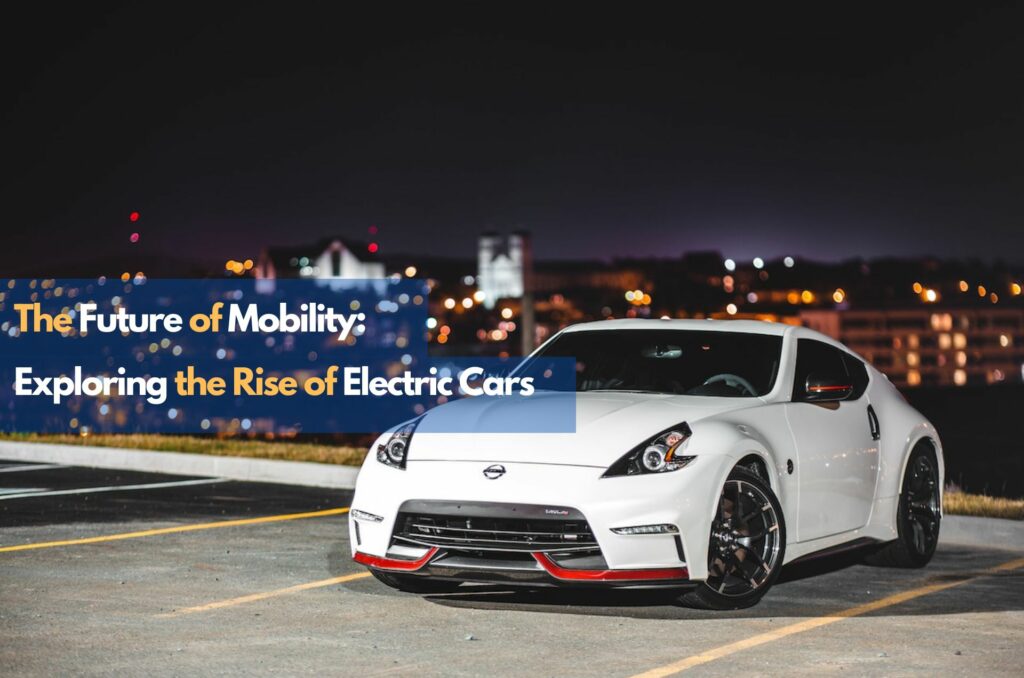The future of mobility is undergoing a revolutionary transformation with the rise of electric cars. Electric cars, also known as electric vehicles (EVs), are vehicles that are powered by one or more electric motors, using electrical energy stored in rechargeable batteries. This article delves into the various aspects of these cars and how they are shaping the future of transportation. Visit Cash For Cars Redcliffe for more updates.
Introduction
Electric cars have gained significant attention in recent years due to their potential to revolutionize transportation. As the world grapples with the challenges of climate change and air pollution, these cars offer a sustainable alternative to traditional gasoline-powered vehicles. The importance of cars in the future cannot be overstated, as they play a crucial role in reducing carbon emissions, improving air quality, and conserving natural resources.
Environmental Benefits
One of the key advantages is their positive impact on the environment. By relying on electricity instead of fossil fuels, these cars significantly reduce carbon emissions, which contribute to global warming and climate change. Additionally, electric vehicles do not emit harmful pollutants such as nitrogen oxides and particulate matter, leading to improved air quality and better health outcomes. Moreover, the use of these cars contributes to the conservation of natural resources, as they rely on renewable energy sources.
Technological Advancements
The rapid advancement of technology has been instrumental in driving the popularity of electric cars. Battery technology, in particular, has witnessed remarkable progress, resulting in increased energy storage capacity and improved range for electric vehicles. Furthermore, the development of a robust charging infrastructure has made it easier for electric car owners to charge their vehicles conveniently. Additionally, the integration of autonomous driving technology with electric vehicles has the potential to revolutionize the future of transportation, making it safer and more efficient.
Market Trends
The demand for electric cars has been steadily rising in recent years. Consumers are becoming more conscious of the environmental impact of traditional vehicles and are embracing the concept of sustainable transportation. Furthermore, governments around the world are implementing initiatives and providing incentives to promote the adoption of electric vehicles. Major automotive manufacturers are also investing heavily in electric vehicle production, further driving the market trends and availability of these cars. You can buy a new car by selling your old car to Cash For Cars Caboolture service.
Challenges and Limitations
While these vehicles offer numerous benefits, they are not without their challenges and limitations. Range anxiety, which refers to the fear of running out of battery power before reaching a charging station, remains a concern for potential electric car buyers. Although the charging infrastructure is expanding, the time required to charge an electric car is still longer compared to refueling a gasoline car. Additionally, the high upfront cost of electric vehicles and limited charging infrastructure in some areas pose barriers to widespread adoption.
Future Developments
The future of electric cars holds great promise, with ongoing developments and innovations in the field. Battery technology continues to improve, leading to increased energy density, longer range, and faster charging times. The expansion of the charging network, including the installation of fast-charging stations, will address the issue of range anxiety and make these vehicles more convenient to use. Furthermore, the integration of electric vehicles with renewable energy sources, such as solar and wind power, will further enhance their environmental benefits.
Related: Choosing the Right Car for Your Lifestyle
FAQs
Q: Are electric cars more expensive than gasoline cars?
A: Electric cars are generally more expensive upfront due to the cost of batteries and electric drivetrain components.
Q: How long does it take to charge an electric car?
A: The charging time for an electric car depends on the charging infrastructure and the battery capacity of the vehicle. It can range from a few hours with fast chargers to several hours with standard charging methods.
Q: What is range anxiety?
A: Range anxiety refers to the fear or concern of an electric car driver about running out of battery power before reaching a charging station.
Q: Can electric cars run on renewable energy?
A: Yes, these cars can run on renewable energy. When charged with electricity generated from renewable sources like solar or wind power, these cars have a significantly lower carbon footprint compared to gasoline-powered cars.
Q: Are these cars suitable for long-distance travel?
A: With the expansion of charging infrastructure and advancements in battery technology, these cars are becoming increasingly suitable for long-distance travel.
Conclusion
In conclusion, the rise of electric cars represents a significant shift in the future of mobility. These cars offer numerous environmental benefits, including reduced carbon emissions, improved air quality, and conservation of natural resources. Technological advancements, market trends, and government initiatives are driving the widespread adoption of these cars. Despite challenges and limitations, future developments hold the potential for even greater advancements in battery technology, charging infrastructure, and integration with renewable energy sources.
Read more about A STEP-BY-STEP GUIDE TO TROUBLESHOOTING CAR ELECTRICAL ISSUES

